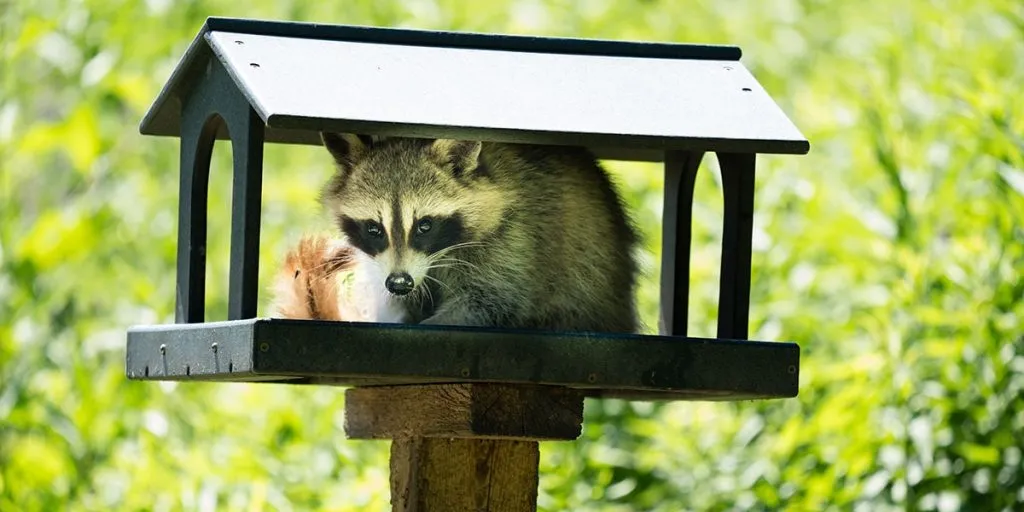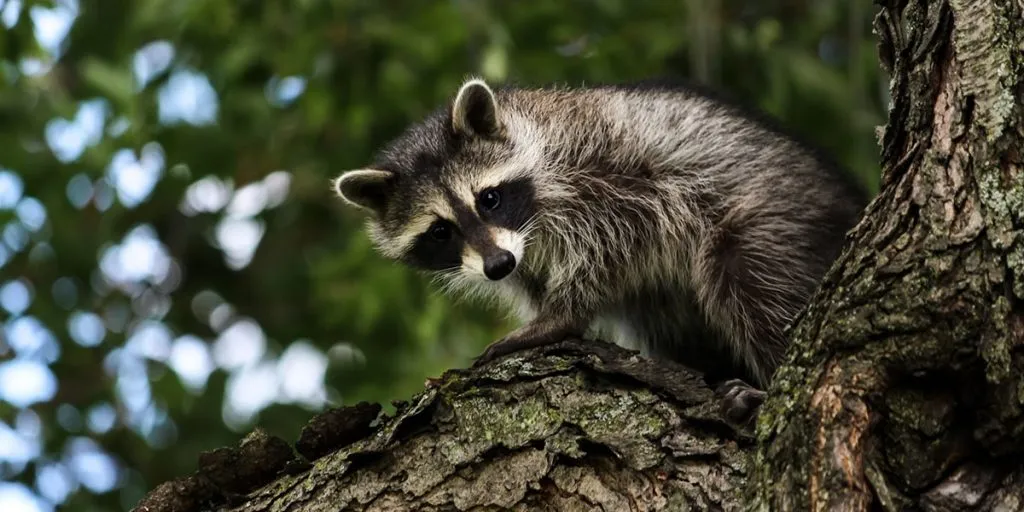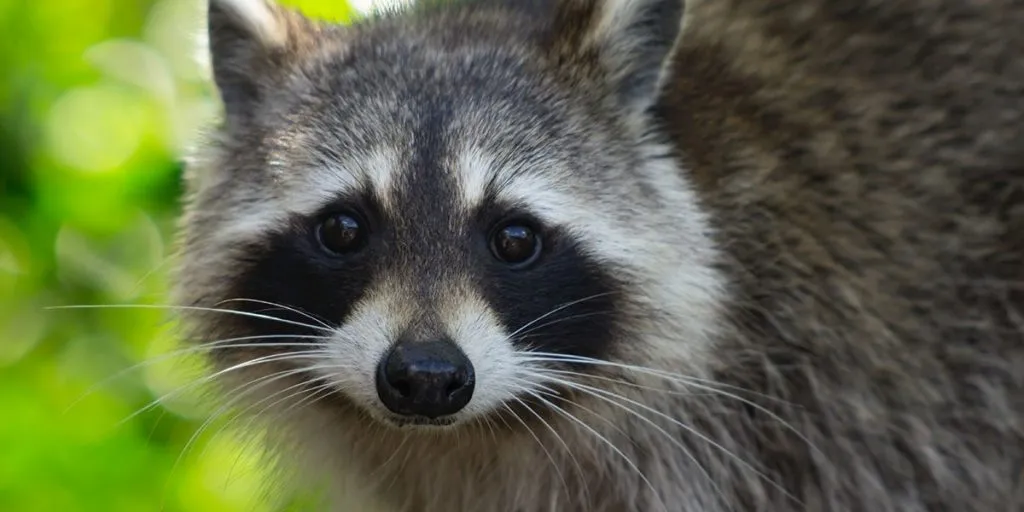If raccoons would eventually leave on their own, life would be a lot easier for many homeowners. Most raccoons tend to stay in one place for longer time periods, but will have more than one nest to live in. To get a raccoon to leave, you’d have to take away their food.
Generally, raccoons will not stay in one place when no reliable food source is available. Raccoons roam around within a 1 mile radius around their dens.
The adaptable animals are cautious about roaming around, because a raccoon has many natural predators. Even in an urban environment, ‘trash pandas’ will spend most of their time in the safety of their nest. Despite this fact, they do relocate in search of greener pastures.
How Long Do Raccoons Stay In One Place?
It is not common for raccoons to stay in one place for longer than a few nights, except when a mother raccoon gave birth to babies. Young individuals start leaving the safety of their den at 8 to 9 weeks old, which is when they move from one place to the next with their mother.
Generally, adult raccoons will move dens every day or every other day. This will allow them to scavenge for food more effectively, while protecting themselves from predators. Most raccoon dens are located near each other. Sometimes a single individual can have up to a dozen dens.
For pregnant raccoon mothers, it won’t be as easy to move to a new location. This is mainly to protect their newborn raccoon babies until they can climb trees. Similar to turtles coming back to the same beach they were born in, a raccoon baby will come back once they are pregnant themselves.
Do Raccoons Return To The Same Place To Nest?
Pregnant female raccoons will always return to the same place they were born in to give birth. A year after a baby leaves its nest, it will continue the cycle and reuse the same nest the next year, as long as that location is still available to nest in.
The new generation of raccoons will generally mate in winter (no, raccoons do not hibernate in winter), after which they carry their young for a gestation period of up to 65 days. Raccoon babies are born from March to June, most commonly in the same nest their mom was born in.
For homeowners that have been dealing with invasive raccoons, the top priority should be to avoid nesting. Once a raccoon gives birth in your attic, crawl space, or chimney, they will never leave again. They will attempt to keep coming back for many generations.
How To Permanently Get Rid Of Raccoons
Removing a raccoon from your property can be hard, because the animals are extremely intelligent and are likely to nest and sleep in multiple places at the same time.
Setting a trap and killing one individual will not solve your problem. If you’d like to permanently remove them, preventive measures need to be taken.
The most efficient way to permanently remove the pests from your home, is to do the following:
- Remove food sources: The best thing you can do to get rid of any pest, is to take away its primary food sources. Raccoons stay around your house because they can consistently find food in the area. Locking garbage bins, fencing off vegetable gardens, and covering fish ponds is the first step in discouraging raccoons from entering your property.
- Block off nesting locations: Raccoons will create dens in tree hollows, dig themselves into borrows, or find a place in your attic or chimney. They are attracted to warmer locations (especially in the colder months). Block off access to trees, vents, crawl spaces, or open spaces under your house or deck as much as possible.
- Discourage with scent: Cougar pee, hot peppers, onions, Epsom salt, or peppermint oil are common scents raccoons will hate. Use these natural weapons to humanely discourage a raccoon from entering your property.
Obviously, the tips listed above won’t always help you to permanently remove raccoons from your area. The habitat range of a raccoon can range up to one mile, which makes it hard to control their behavior. However, a professional can help you get rid of your raccoon problem once and for all.
When To Contact Raccoon Removal Services
Throughout the North-American continent, pest control companies can help you remove larger mammals (such as raccoons). A removal service can help identify and relocate raccoons from your property with only a few visits.
Please be mindful of the fact that specialized pest control services can be quite costly.
If you’d like to humanely and permanently get rid of raccoons from your property, first attempt to discourage them from entering. Only if that doesn’t solve your problem, consider contacting a professional. It’s always better to take preventive measures against raccoons that don’t want to move out of your place.
Remember that raccoons relocate and leave a specific den quite fast. However, if you’re dealing with a mother raccoon and her young, it might make more sense to contact a professional pest company to relocate the family, in order to avoid trouble in the future.
Because as you now know, pregnant female raccoons will always stay in one place for a longer period of time (and their young will come back every year).



